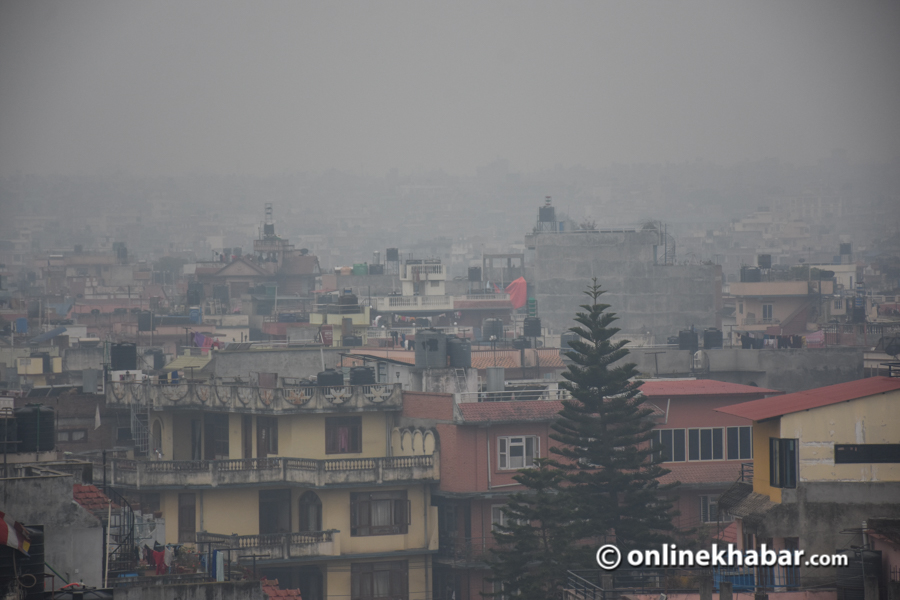
Thomas Winther, the Chairman of the Association of Danish Music and Culture School and former Rector of the Royal Academy of Music Aarhus, is in Nepal to attend GLOMUS Camp 2024, a 10-day international music and theatre camp. Winther is also a Co-Founder of GLOMUS Camp.
Hosted by the Nepal Music Center Trust, the camp includes participants from 21 countries and 31 universities.
Recently, Onlinekhabar caught up with Winther and spoke about GLOMUS, artistic intelligence, artistic citizenship and various other aspects of art.
Excerpts:
As a co-founder of GLOMUS, why do you think the program is important for artists attending the camp in Nepal?
First of all, it allows people from different countries and cultures to come together and share something from their own culture, moreover, it also discusses music pedagogy and how performing arts can influence society.
You’ve been with GLOMUS since its inception. How has it impacted participants and shaped their perspectives on global collaboration?
Over the years, we have built a network with the teaching community and institutions from various parts of the world. So, while it is difficult to quantify the exact changes, I am sure that for many students, it has opened their minds.
It has made them more accepting and willing to interact with different cultures. They have had the opportunity to create a global network they wouldn’t have had otherwise. I believe GLOMUS has helped students from around the world realise the importance of being and working together beyond the artificial boundaries we see and know.
GLOMUS brings together diverse artists to discuss challenges and opportunities. How do you view the challenges artists face today?
That is of course a very big question. As I mentioned in a speech yesterday, we have now, in a way, democratised the means of production. It is very cheap to buy a digital studio these days, and there are excellent, affordable microphones available. You can easily buy a video camera as well. But things were different in my generation—if you were recording an album, you had to rent a studio for a long time, and it involved many hassles.
Currently, the democratisation of production is great. However, what’s not good is that we spend all our time behind screens and do not interact as human beings. For instance, I could sit here and record a song immediately without needing to see anyone. There’s a kind of alienation. A general problem and challenge in today’s society is that we are increasingly isolated behind screens, not getting to know or interact with each other as humans. I think that is one of the huge challenges for future generations of artists.
In this edition of GLOMUS, there’s a discussion on ‘artistic intelligence.’ Could you explain it in simple terms?
Artistic intelligence is actually allowing ourselves to play as a human. Since the Stone Age, we have performed art for no apparent reason but only because we are humans and it is within our DNA to actually express ourselves. We have to get back to a sense where we acknowledge how important it is to be playful and artistic.
Being aesthetic or the things that contribute to your joyfulness, enjoyment and enlightenment is artistic intelligence.
Since you’re focused on music, what are your thoughts on using AI in music production and its impact on artistic creativity?
I have heard several AI-produced works, and while they sound brilliant and technically impressive, they are completely uninteresting because I can actually sense that there is no human behind them. AI products tend to be uniform, lacking that unique edge—the element of surprise or something unexpected, something that’s out of the ordinary and deviates from the norm.
You will never find AI producing a song as good as Taylor Swift’s or The Beatles’ work, or many other great artists.
Before entering the education sector, I worked as a producer for 25 years. We have always been somewhat wary of new technology. I think AI can and will help us do things better and faster, but it won’t make us better human beings, because AI itself is not human. As consumers of culture, we will quickly learn to distinguish between what is created by AI and what is not.
Another concept being discussed at GLOMUS is ‘artistic citizenship.’ Could you tell us more about it?
Artistic citizenship is to engage the community with the arts. Artistic citizenship is actually to interact with society in the co-creation of artistic products. And that does not mean that everything will be wonderful. It is more the process of doing a project, rather than the end product.
To be a good musician, actor, or visual artist, you need to know more than just how to create your art. You must understand how to engage in co-creation and work with society. Building knowledge of how these processes function is essential.
If we do not engage in such practices, we will certainly become irrelevant. Artists must take on this role because AI cannot go out and collaborate with people for the co-creation of artistic products.
Lastly, in many developing countries, including Nepal, the art sector isn’t prioritised. How is the concept of artistic citizenship relevant in these contexts?
Shilpee Theatre, a Kathmandu-based theatre, has been working precisely on the concept of artistic citizenship. They are going out and working in the villages or the neighbourhoods, engaging people in a different way than just having them sit there and watch a play.
I think, actually in many developing countries, there has been a larger tradition of this rather than in the West. Such things are absolutely important for the survival of the arts.
If we only make art for the stage and commercial production in a number of years, we will be irrelevant because AI can do it very well. As human beings, we can interact with each other which AI cannot do. One of the ways we interact with each other is actually committing to artistic citizenship.




















